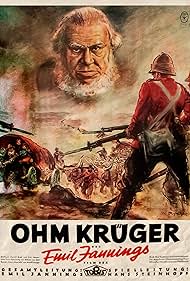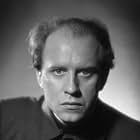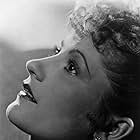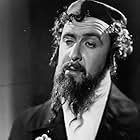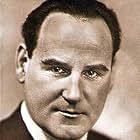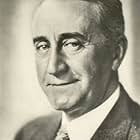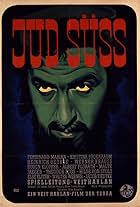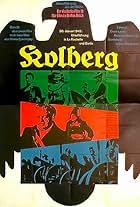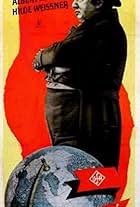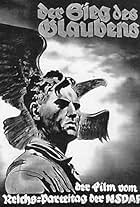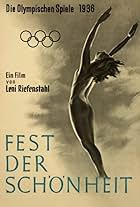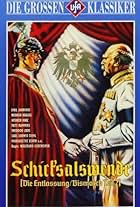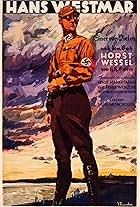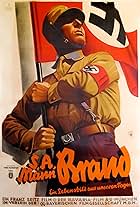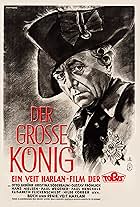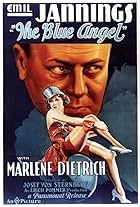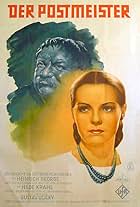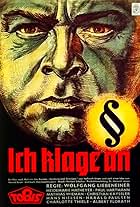Rousing biopic of Paul Kruger, the Boer guerilla fighter turned statesman and first president of South Africa.Rousing biopic of Paul Kruger, the Boer guerilla fighter turned statesman and first president of South Africa.Rousing biopic of Paul Kruger, the Boer guerilla fighter turned statesman and first president of South Africa.
- Awards
- 1 win total
- Directors
- Writers
- All cast & crew
- Production, box office & more at IMDbPro
Storyline
Did you know
- TriviaA month after the film's première, a special (a branch of the SS) SD (Sicherheitsdienst des Reichsführers-SS) Report was commissioned on the effect of the film which came to the conclusion that it was a resounding success.
- GoofsOn the posters during the protests it is said "Neder met Engeland", meaning "Down with England". However the original line in Afrikaans should have been "Saam met Engeland" or "Neer met Engeland".
- Quotes
Chamberlain: The governmant of her majesty is happy to raise a friendly relationship with the State of the Boers.
Ohm Krüger: The important thing on such contracts is that is is made good as well.
- Crazy creditsAt the end of the movie, instead of the word "Ende" (The End) the company's logo "Tobis" appears.
- ConnectionsEdited into Deutschland, erwache! (1968)
Featured review
Paulus "Oom Paul" Kruger (1825-1904) was president of the Transvaal(1883-1900) and leader of the Boers during the Boer War (1899-1902). Although defeated by the British, Kruger achieved considerable acclaim for his stout fight against the odds.
In the film, a blind and exiled Kruger recounts the war to his young nurse. The British are depicted as clever, duplicitous, and ruthless. The Boers are shown as resolute and valiant, but ultimately as victims. So the film served Nazi audiences as both an inspiration and as a warning - honor the Boer's heroism but don't let their fate befall you!
Jannings is excellent as Kruger and the caricatures of the British villains (Queen Victoria, Lord Kitchener, Winston Churchill - complete with bulldog) are sometimes amusing, but the spectacle scenes (a Boer "off to war" parade and the battle sequences) are much too long and poorly edited. The final massacre of women and children in a British concentration camp is clearly derived from the Odessa Steps sequence in Eisenstein's "Potemkin."
Propaganda pictures are seldom effective and "Ohm Kruger" is no exception. Everything in the film is taken too far, but then the Nazis had a tendency to go too far. In that sense, "Ohm Kruger"reflects their perspective very well.
In the film, a blind and exiled Kruger recounts the war to his young nurse. The British are depicted as clever, duplicitous, and ruthless. The Boers are shown as resolute and valiant, but ultimately as victims. So the film served Nazi audiences as both an inspiration and as a warning - honor the Boer's heroism but don't let their fate befall you!
Jannings is excellent as Kruger and the caricatures of the British villains (Queen Victoria, Lord Kitchener, Winston Churchill - complete with bulldog) are sometimes amusing, but the spectacle scenes (a Boer "off to war" parade and the battle sequences) are much too long and poorly edited. The final massacre of women and children in a British concentration camp is clearly derived from the Odessa Steps sequence in Eisenstein's "Potemkin."
Propaganda pictures are seldom effective and "Ohm Kruger" is no exception. Everything in the film is taken too far, but then the Nazis had a tendency to go too far. In that sense, "Ohm Kruger"reflects their perspective very well.
Details
- Release date
- Country of origin
- Language
- Also known as
- Uncle Kruger
- Production company
- See more company credits at IMDbPro
- Runtime2 hours 4 minutes
- Color
- Sound mix
- Aspect ratio
- 1.37 : 1
Contribute to this page
Suggest an edit or add missing content

